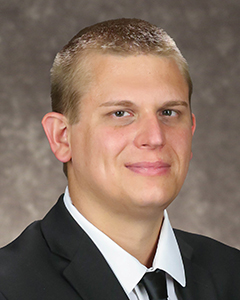Interventional Radiology Provides Easier Path to Recovery
September 12, 2024Categories: Cover Story, Feature
Tags: Fall 2024

 Victoria Love, 69, got used to taking pain medications whenever pain or stiffness appeared. Gradually, she noticed over-the-counter remedies weren’t helping her pain. Victoria brought her ailments to North Kansas City Hospital and Meritas Health and found relief through interventional radiology (IR).
Victoria Love, 69, got used to taking pain medications whenever pain or stiffness appeared. Gradually, she noticed over-the-counter remedies weren’t helping her pain. Victoria brought her ailments to North Kansas City Hospital and Meritas Health and found relief through interventional radiology (IR).
Unlike conventional surgery, IR offers minimally invasive, image-guided techniques to diagnose and treat patients. Using X-rays, CT, MRI and other imaging methods, interventional radiologists guide special instruments into the desired location to treat the targeted abnormality instead of making large incisions. Because of this, IR offers less patient risk, pain and recovery time.
“Individuals can come to us for not only a diagnosis but we also provide intervention, so people can come with a problem and hopefully walk out the same day with a solution,” said Ashlyn Hull, RT, director of radiology.
NKCH and MH has always been intentional in investing in IR and providing the latest in technology for our patients, like Victoria.
Gaining Relief and Peace of Mind
Victoria attributed her general pain or stiffness to aging and used over-the-counter medications to solve the problem. While this worked for some ailments, like headaches or joint pain, it wasn’t the complete solution.
“As we get older and settled into our ways, we think we have all the answers for our health,” said Victoria, who lives in Kansas City. “I’ve been hard-headed my entire life and it’s only gotten worse with age.”
At the beginning of 2024, Victoria visited her primary care provider, Samantha Fawcett, MD, a family medicine doctor with Meritas Health Gashland. During the physical, Victoria mentioned stiffness in her lower back. So, Dr. Fawcett ordered a computerized tomography (CT) scan to look into the problem.
Health Expert

Gregg Werner, MD
Interventional Radiologist
Learn more at
MeritasHealth.com/GWerner.
During the CT scan, the radiology team noticed small lesions growing on Victoria’s right kidney. They were unable to determine if the lesions were cancerous from the images. Since they hadn’t spread to surrounding organs, the radiologist thought the safest option would be to have them removed before they could potentially spread.
In March, Victoria met with Gregg Werner, MD, interventional radiologist with Meritas Health Interventional Radiology, to discuss using IR to remove the lesions.
“Usually, the options for small lesions like this are either surgery or a minimally invasive option, where I put a type of antenna into the lesion and burn it away along with a little bit of tissue around it,” Dr. Werner said. “This is known as microwave ablation. It only requires a small incision and saves the patient from a more involved operation. The recovery time is less than 24 hours; whereas, surgery would require at least a week to recover.”
Though both options made her nervous, Victoria had the microwave ablation.
“I feel really good about the outcome of the surgery,” Victoria said. “The scare of the lesions gave me a much-needed reminder to not put off my pains, aches and stiffness as signs of aging every time. If something doesn’t feel right, it’s important to get checked out to ensure it’s not something serious.”
The Many Uses of IR
Interventional radiology treats a wide range of conditions using various small devices and imaging methods.
- Dissolves blood clots
- Kills tumors with heat
- Shrinks uterine fibroids
- Stops spinal fracture pain
Together, we can bring hope and healing to every life we touch.
To make a gift and help change and save lives, visit nkch.org/Giving, or contact the Philanthropy team at 816.691.1445 or giving@nkch.org.